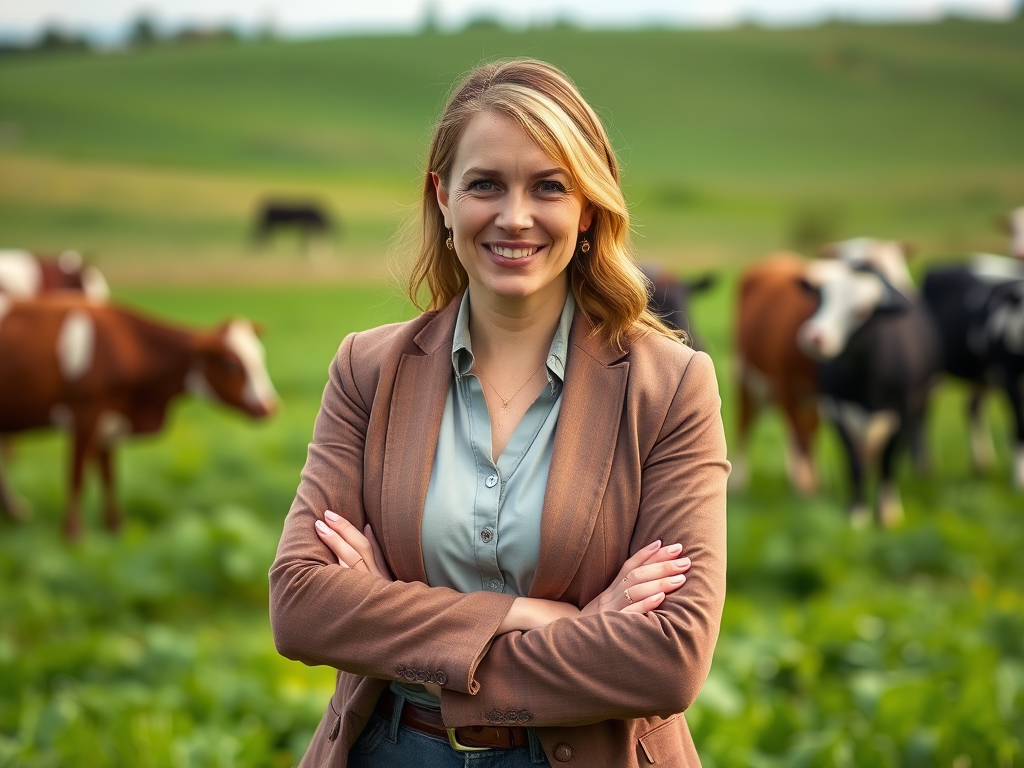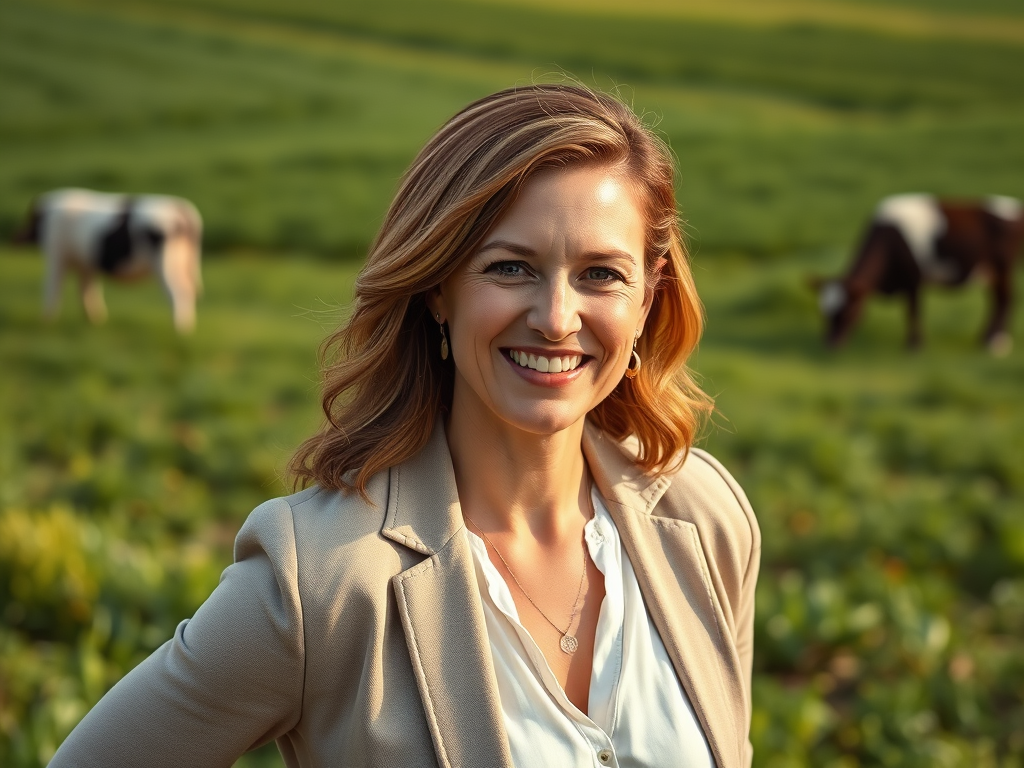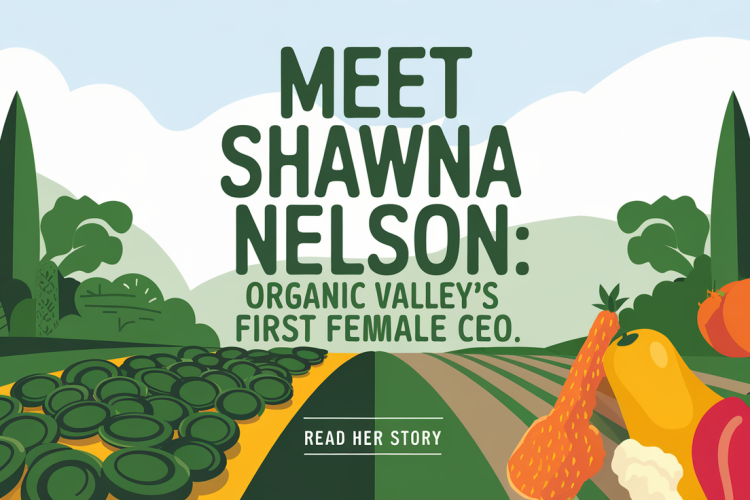In a groundbreaking announcement, Organic Valley has appointed Shawna Nelson as its fourth CEO, making her the first female chief executive in the cooperative’s 37-year history. Set to take the helm on March 28, 2025, Nelson brings an impressive two decades of experience within the organization to her new role. Her appointment represents a significant milestone for women in the dairy industry, where female leadership remains relatively rare. Nelson expressed both honor and humility in accepting the position, reaffirming the cooperative’s unwavering commitment to organic family farms and sustainable agriculture practices.
From Intern to CEO: Nelson’s Remarkable Journey
Shawna Nelson’s path to the CEO office showcases a classic story of determination and growth within a single organization. Starting as an intern in 2005, Nelson steadily climbed the ranks at Organic Valley, taking on progressively more responsible positions. Her career path included significant roles in human resources, marketing, sales, and most recently as Executive Vice President of Membership and Vice President of the dairy pool.
Her educational background has provided a solid foundation for leadership. Nelson holds a bachelor’s degree in business administration and impressively complemented this with a master’s in servant leadership from Viterbo University. This education in servant leadership particularly aligns with Organic Valley’s cooperative model, where service to member farmers remains central to the mission.
Steve Pierson, President of Organic Valley’s Board of Directors, highlighted Nelson’s qualifications in the announcement: “Shawna’s deep understanding of our cooperative model and her innovative vision make her the ideal leader to guide Organic Valley into the future.” Her promotion from within signals the organization’s confidence in her abilities and appreciation for dairy industry expertise developed over years of hands-on experience.

The Organic Valley Legacy
Founded in 1988 in La Farge, Wisconsin, Organic Valley has grown to become the largest farmer-owned organic cooperative in the United States. The organization now represents more than 1,600 farmers across an impressive geographic span that includes 34 U.S. states and extends internationally to Canada, Australia, and the United Kingdom. This extensive network has helped Organic Valley achieve remarkable financial success, with sales reaching $1.2 billion in 2024.
The cooperative’s success stems from its unwavering dedication to organic farming practices and sustainability. Unlike conventional agricultural corporations, Organic Valley operates under a farmer-owned model that prioritizes fair compensation for producers while maintaining strict organic standards. This approach has resonated with consumers increasingly concerned about the origins of their food and the environmental impact of agriculture.
For many food enthusiasts, Organic Valley represents more than just another brand on store shelves. The cooperative has built a reputation for quality dairy products with protein and other nutritional benefits that come from organic farming practices. Under Nelson’s leadership, this legacy of quality and commitment to organic principles will likely continue while adapting to changing market conditions.
Nelson’s Strategic Vision
As she prepares to take the helm, Nelson has outlined several key priorities that will guide her leadership of Organic Valley. Chief among these is a focus on innovation in organic dairy products while exploring expansion into plant-based alternatives. This dual approach reflects changing consumer preferences while maintaining the organization’s core dairy expertise.
Nelson has emphasized that despite market diversification, supporting small family farms remains at the heart of Organic Valley’s mission. “Our commitment to organic family farms and sustainable agriculture has never been stronger,” she stated in the announcement. This balance between innovation and tradition will be crucial as the cooperative navigates changing consumer preferences and market pressures.
The new CEO plans to strengthen Organic Valley’s position in the organic market through strategic initiatives aimed at both production and marketing. Her extensive experience in multiple departments gives her a comprehensive understanding of challenges facing the cooperative, from farmer recruitment and retention to consumer marketing and product development. Nelson’s leadership style, informed by her education in servant leadership, suggests she’ll approach these challenges collaboratively, working closely with industry partners and the cooperative’s membership.
Breaking Gender Barriers in Dairy
Nelson’s appointment represents a significant milestone not just for Organic Valley but for the entire dairy industry. As the first female CEO in the cooperative’s history, she joins a small but growing number of women in leadership positions within food and agriculture. Her achievement is particularly notable given that only 14% of CEOs in the food and beverage industry were women as of 2024.
Organic Valley has demonstrated leadership in gender equity beyond this appointment. The cooperative reports that women hold 48% of upper-level leadership roles within the organization, far exceeding industry averages. This commitment to diversity at the leadership level reflects a broader organizational culture that values different perspectives and experiences.
The dairy industry has traditionally been male-dominated at all levels, from farm ownership to corporate leadership. Nelson’s rise to CEO signals a shifting landscape in agriculture, where talent and capability increasingly outweigh traditional barriers. Her success story provides an inspiring example for other women in the industry and for young people considering careers in agriculture and food production.
In recent years, several major dairy processing facilities have made similar strides in diversifying their leadership. Companies like Hilmar Cheese with its Dodge City facility have recognized the value of inclusive leadership approaches. Nelson’s appointment continues this positive trend while highlighting Organic Valley’s progressive approach to organizational leadership.
The Cooperative Advantage in Changing Markets
As Nelson prepares to lead Organic Valley into its next chapter, the cooperative model itself offers distinct advantages in today’s food system. Unlike publicly traded corporations that must prioritize shareholder returns, farmer-owned cooperatives can focus on long-term sustainability and farmer welfare. This structure allows for decisions that balance financial performance with social and environmental considerations.
The cooperative model also creates resilience during market fluctuations. By pooling resources and sharing both risks and rewards, member farmers gain stability that individual producers often lack. This becomes increasingly important as climate change introduces new uncertainties into agricultural production and as consumer preferences continue to evolve rapidly.
Nelson’s experience within the cooperative gives her unique insight into maximizing these advantages. Her previous roles working directly with member farmers provide her with firsthand knowledge of the challenges they face and the support they need. This farmer-centric perspective will likely inform her leadership approach and strategic decisions as CEO.

A New Era for Organic Valley
As Nelson takes over from outgoing CEO Jeff Frank on March 28, 2025, she’ll face both challenges and opportunities in the evolving food landscape. The organic sector continues to grow, but so does competition from both conventional producers adopting some organic practices and new alternative food production systems. Navigating these market dynamics while maintaining Organic Valley’s core values will require strategic vision and operational excellence.
Nelson’s appointment comes at a time when consumer interest in food production methods remains high. Concerns about health, environmental impact, and animal welfare continue to drive purchasing decisions for many consumers. Organic Valley’s commitment to transparent, sustainable production methods positions it well to meet these consumer demands, and Nelson’s leadership will be crucial in communicating these values effectively.
The cooperative has recently explored innovations in sustainable packaging and improved dairy cattle health through partnerships with agricultural technology companies. Under Nelson’s leadership, these initiatives may accelerate as part of a broader commitment to continuous improvement and environmental stewardship. Her vision includes embracing innovation while remaining true to the cooperative’s founding principles.
For those interested in following developments at Organic Valley, the cooperative maintains regular updates through its website at organicvalley.coop. Media inquiries can be directed to Elizabeth McMullen, Corporate Communications Manager, at elizabeth.mcmullen@organicvalley.coop or by phone at 608-625-2549. As Nelson begins her tenure as CEO, she’ll undoubtedly bring her own distinctive leadership style while honoring the cooperative’s rich history and commitment to organic agriculture.



